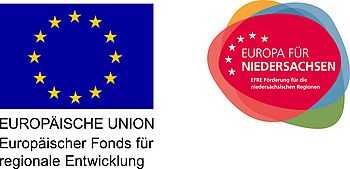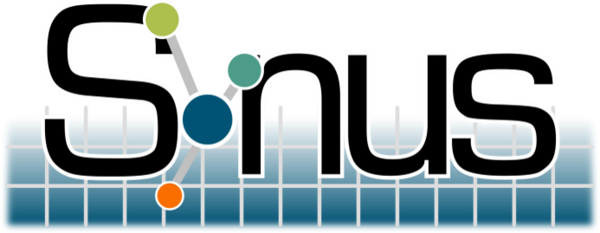Synus
Potentials and Challenges
The digitalisation of the complete value chain is connected with substantial productivity increases and economically potentials across all industries for the industrial location of Germany. Basis of all Industry 4.0-solutions (I4.0-solutions) is the aquisition, treatment and supply of information for the real-time networking of human, machine, objects and ICT-Systems. The range of available I4.0-solutions addresses several functional areas and company divisions. The distribution, analysis and target-oriented utilization of information yield a range of potentials for a better planning and management of processes and products alongside the value chain. Despite the promising potentials companys are reserved with the digitalisation of their own business processes and production. This restraint is mainly a result of the following obstacles:
- Deficient knowledge about available I4.0-solutions and their related potentials
- Mainly high initial investions and unknown subsequent costs, e.g. utilization or qualification of the staff
- Difficult prognosis positiv and negativ consequences which result of the implementation of specific I4.0-solutions for the company
A sound knowledge and methadology is missing to hedge in an objectiv and holistic manner I4.0-investions in the digitalisation of own business processes. It is nearly impossible for companys to evaluate which functional area and company divison can be fostered reasonably. The target-oriented selection and implementation of I4.0-solutions considering the specific requirements and framework conditions of companys is insufficent fostered until now. Especially the occuring costs for company individual customizing or the utilization are often not considered whereby the advantageousness of I4.0-solutions in the long-term is questioned. Previous evaluations of I4.0-solutions potentials are also focussing mainly on the area of production. Potentials and requirements which will occur through the implementation of I4.0-solutions in other company dicisions such as product development are normally not considered.
Approach and Project Goal
The Synus innovation network is carried out in cooperation with TU Braunschweig, TU Clausthal and Ostfalia HaW and with the participation of various industrial and transfer partners from the Braunschweig and Göttingen regions. The aim of the innovation network is to map the information, material and energy flows within companies that have changed as a result of I4.0 solutions across all divisions. This is intended to identify potential, but also obstacles, through the implementation of I4.0 solutions and to safeguard investment decisions. In order to achieve these objectives, modelling, simulation and evaluation methods and tools, the integrated conception and evaluation of I4.0 solutions are researched, prototyped and applied in practice. The following subgoals are in focus:
Identification and characterization of existing I4.0 solutions for product development, production planning, and production.
Development of a potential model, which offers companies an overview of the interactions between specific I4.0_solutions, as well as their different fields of action and target criteria (quantitative and qualitative).
Conception of a multiscale modelling methodology and development of a model library to map company-specific information, material and energy flows on different levels (e.g. physical level, information system and embedded systems).
Development of a simulation platform for production systems that accesses the previously created model library and creates the basis for a quantitative assessment of the potentials of specific I4.0 solutions by quantifying information, material and energy flows.
Development of an evaluation methodology for the assessment of the added value achievable through I4.0 solutions with the aid of quantitative simulation results, qualitative criteria on the levels of product development, production planning and production as well as existing uncertainties (e.g. robustness or availability of technologies).
The results are a multiscalar tool set and a comprehensive guide for modelling, simulation and evaluation of I4.0 solutions. With the help of this tool set, potentials and expenditures of the use of specific I4.0 solutions from the perspectives of product development, production planning and production are to be shown and evaluated on the basis of quantitative and qualitative criteria. The conception and application of the tool set within the framework of case studies should produce simulation and evaluation tools useful for industrial enterprises. In the medium term, these tools will enable SMEs to assess the company-specific potential of I4.0 solutions on the basis of the existing infrastructure, organisational framework conditions and strategic planning.
Objectives and approach of the subprojects
Target:
With the help of the automation pyramid, the bridge between technical processes and the business processes above them has been successfully built in recent years. It encompasses all necessary functions of automation technology and divides them into four layers. The subproject of TU Clausthal aims at researching a concept for modular I4.0 models, which links the different layers of the automation pyramid and enables a modular structure of production models. The focus is on the IT architecture between the individual levels of automation technology.
Approach:
In order to arrive at a meaningful assessment of the potential of I4.0 solutions, it is essential to quantify information, material and energy flows at the production level. In order to make this possible at a reasonable cost for SMEs, an executable simulation platform will be designed within the subproject of TU Clausthal. It allows the compilation and integrated simulation of modular models from the model library in a production model. This allows the virtual comparison of the actual state with different I4.0 states in the context of the already existing system landscape.


Project partner
- Institut für Konstruktionstechnik, TU Braunschweig
- Institut für Automobilwirtschaft und Industrielle Produktion, TU Braunschweig
- Institut für Werkzeugmaschinen und Fertigungstechnik, TU Braunschweig
- Institute for Software and Systems Engineering, TU- Clausthal
- Institut für Mechatronik, Fachgruppe Regelungstechnik und Fahrzeugmechatronik, Ostfalia HaW
- BrunXS GmbH
- CarlMahr GmbH
- IPR GmbH
- Salzgitter Maschinenbau AG
- SimPlan AG
- Stöbich Brandschutz GmbH
- Viscom AG
- Wilhelm EWE GmbH
- Harzer IT-Netzwerk
- KIM Kooperationsinitiative Maschinenbau e.V.
- Wirtschaftsförderung Landkreis Wolfenbüttel
- Wirtschaftsförderung Stadt Salzgitter
- Wirtschaftsförderung Region Göttingen
- VDI, Bezirkskreis Braunschweig

